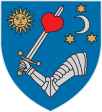Bod Péter
BOD Péter (1712–1769)
Literature historian, writer, priest, researcher of Protestant Church history, prominent figure of Transylvanian culture in the 18th century.
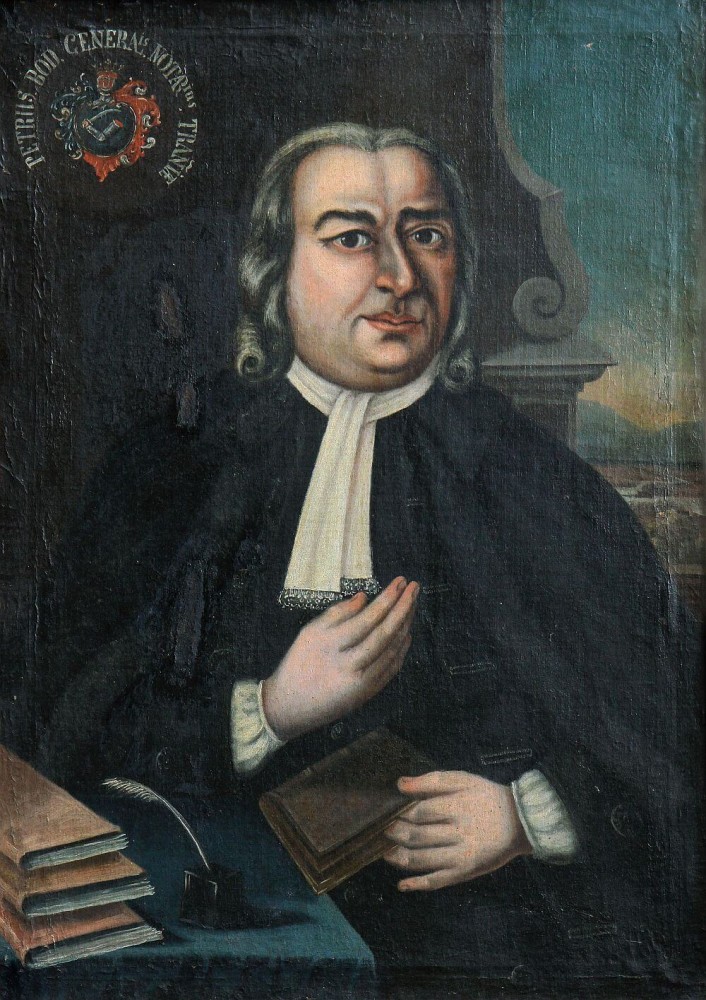
Bod Péter's Portrait (from the collection of the Art Museum in Cluj-Napoca)
He was born on 22 February 1712, at Cernatul de Sus, in the Land of Háromszék (’Three Chairs’, today Covasna county). His parents, Bod Márton and Sólyom Euphrozina were descendants of noble families.
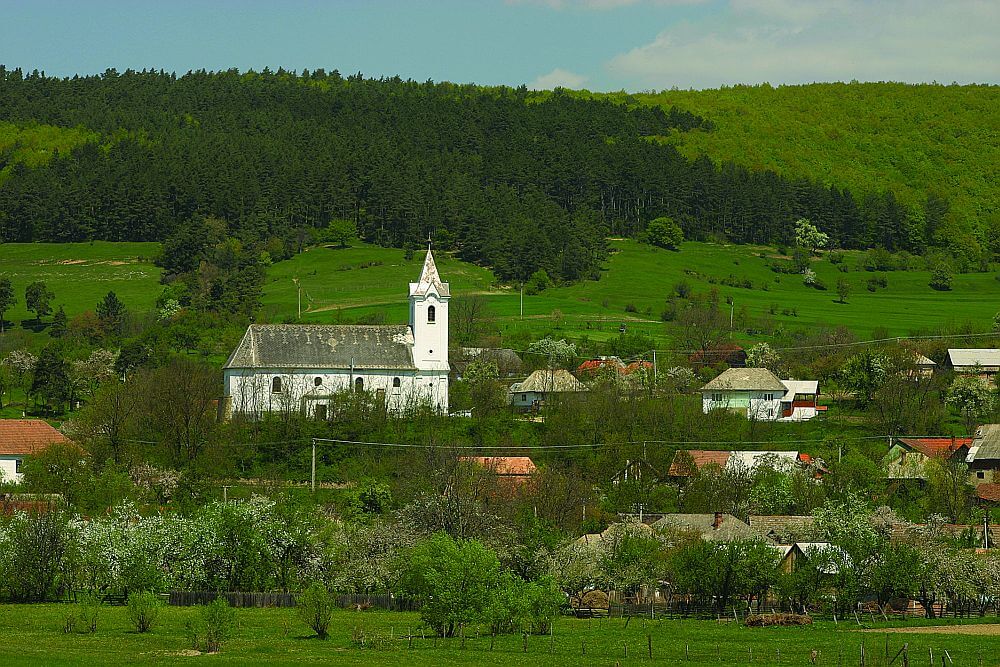
Panorama from Cernatul de Sus, with the Reformed Church (photo: Orsolya Dimény-Haszmann)
His father died when he was 7. His mother was compelled to raise her children in harsh circumstances. In 1742, at the age of12, Péter begins classes at the Bethlen College, in Aiud, where he saves money and survives as a servant-boy, learning and serving children from noble, wealthy families. In 1729, at 17, he is invited to teach as a primary school teacher at Schola Rivulina from Baia Sprie.
In 1732 he returns to the College in Aiud to study theology and philosophy, and in 1736, as a reward for his diligence, he is made librarian of the College.
As a librarian, he achieves continual training and founding the bases of library science in Transylvania through systematising and cataloguing the library of countess Bethlen Kata (1700–1759) and the one of count Teleki Sámuel from Şard.
He refines his Hebrew language studies and he is named teaching assistant for this subject. His merits are recognized early on, he is invited as rector at the Reformed College from Orăştie, position he did not accept because of his plan of academic pilgrimage in the Low Countries. He was an eminent student in his three years of study at the University of Leiden, fact certified by his five recommendation letters that he brought back with him in the native places.
He accepts the invitation of his patron – countess Bethlen Kata, and becomes the preacher of the court of Făgăraş city and after his consecration as a priest at Council of Băţanii Mari, beginning with 1746 he was the priest of the Hoghiz community, both being domains of the countess.
In 1748 he married Enyedi Mária, the daughter of the admin of Brancoveanu's domains. During his activity as a priest in Făgăraş, he systematizes and rearranges several times the valuable collection of the countess' library, managing to do this due to his knowledge of library science acquired at Aiud and Leiden.
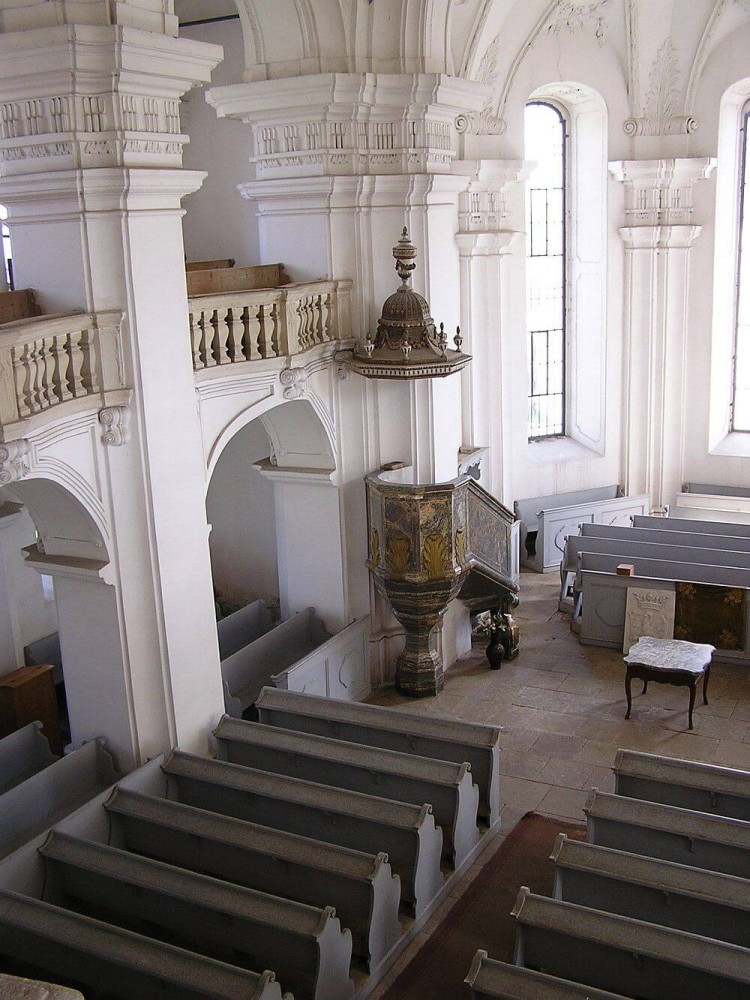
Reformed Church from Ighiu (Alba county), where Bod Péter worked in his last years (photo: Gudor Kund Botond)
In 1749 he is invited as a priest to the reformed parish from Ighiu – locality nearby the princely town. He occupied this position from the 5th of December 1749. The same year, his wife died due to complications at the birth of their first child. After a short period of widowhood, Bod met Bányai Zsuzsánna,the daughter of reformed dean from Benicin Ighiu. They got engaged and married and their marriage has been blessed with nine children, out of whom only three reached adult years of life.
From Ighiu, Bod promotes the idea of Hungarian Scientific Academy. He wrote here his main work - Magyar Athenás (Hungarian Athens), which shortly became one of the most wanted literary history works in Transylvania and Hungary.
In 1767 he is chosen general notary of the Reformed Church, with real chances of becoming Reformed bishop.
He died after two years, on the 2nd of March 1769, after having septicemia. He cut his hand while grooming his vineyard. He was initially buried in the priestly cemetery in Ighiu, and in 1912 he was reburied near the local church.
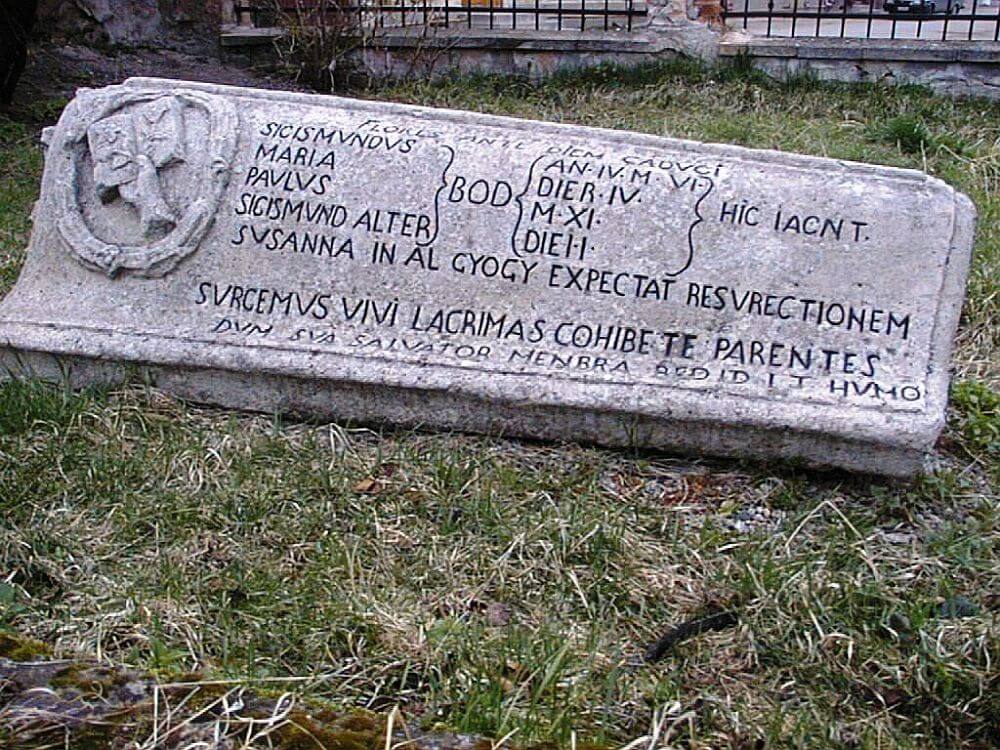
The funerary stone of Bod Péter from Ighiu (photo: Gudor Kund Botond)
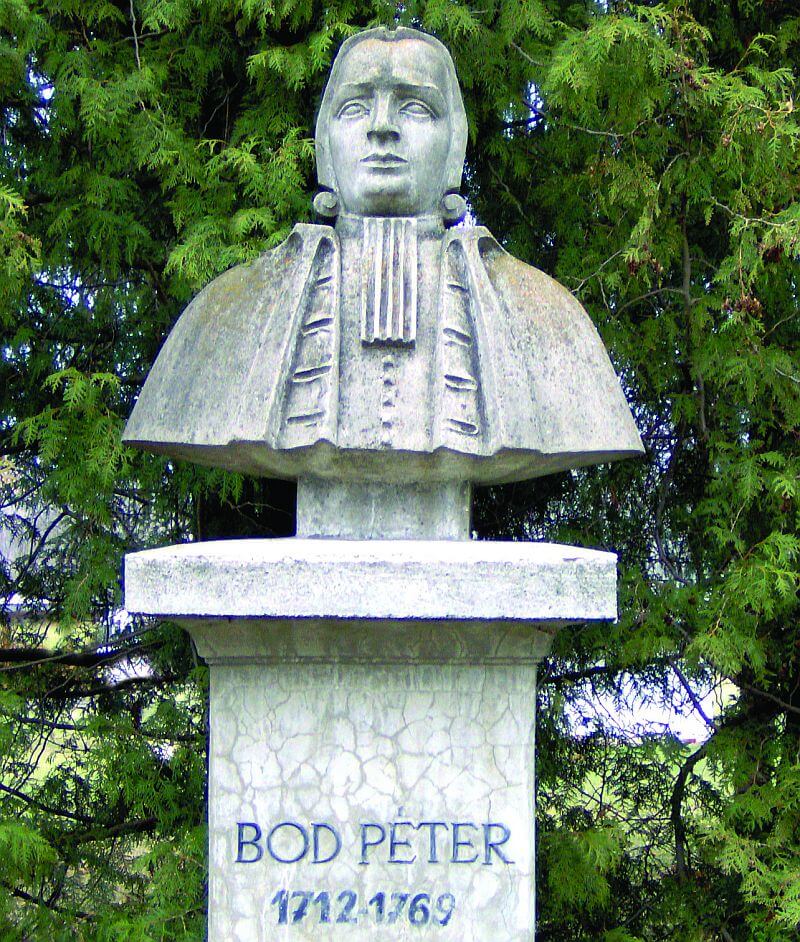
Statue from the courtyard of the Museum Haszmann Pál from Cernat.
Bod Péter was recognized by the 19th century society mainly as literature historian, through his mentioned work. Quantitatively and regarding some aspects, qualitatively too, his historiographical work, mostly unpublished and unexplored, better reflects his erudition. Modern critique of history always regarded Bod as a historian of literature. His contribution to the development of historiography was only perceived as an attempt to synthesize, organize and collate documents, without contextualizing its origin and historical formation. The history of literature consecrated him, almost irrefutably, as a scientist of belletristic. Bod Péter was and remains, besides his reformed priest activity, an important author for the 18th century Transylvanian historiography.
Fragments of the first chapter of his book GUDOR Kund Botond, Historian Bod Péter (1712–1769), published at the Publishing House from Cluj, 2008.

